-
All products are added to your cart.
Mineral vs. chemical UV filter
Mineral UV Filters: is often referred to inorganic UV filters (Zinc Oxide and Titanium dioxide) in sun protection products that form a physical shield on the skin surface to reflect the radiation.
Chemical UV Filters: this often refers to organic UV filters in sun protection products that form a chemical reaction to the UV radiation by taking it and converting to heat.
MYTH: "Chemical UV filters are more harmful to us and the environment because they will sink in."
FACT: "Both types of filters have the property to reflect the UV radiation on the surface, but will also be absorbed. However, the danger of this is not proven."
In reality, most UV filters already work immediately when applying as a shied for UV radiation and will slowly be absorbed. Both converts UV radiation to heat.
Mineral filters might reflect a little more UV rays on the surface, however, this is so minimal that it does not have to influence your choice. Old generations of chemical filters did have a bigger risk of irritations and allergies, but this is no longer the case with the newer generations.
Mineral filter advantage: can work like a tone up base on light skin tones because of the white cast.
Chemical filter advantage: no white cast and gives a higher UVA protection making it ideal for those with hyper pigmentations.
Both types of filters should be reapplied to the skin after a while as indicated on the packaging of the sunscreen product. This is not because the effect is reduced, but because the coverage is reduced by sweat, friction, etc.
Also there is actually not enough good evidence showing that our sunscreens are killing the coral reefs according to some coral researchers. The concentration of our sunscreens found on these corals are too low to have negative effect. However other things that we do as humans will have considerably impact on them such as overfishing, trampling while swimming near them, sewage system near civilisation, etc.
For the best UVA and UVB protection, we recommend to use a combination of both types of filters along with the correct and generous application!
A recent blog from Michelle van Labmuffin Science will tell you more about sunscreen myths.







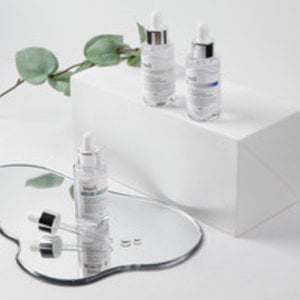

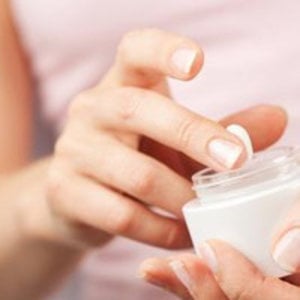









 Teenager
Teenager Student
Student Career (searching)
Career (searching) Party!
Party!
 On the plane
On the plane Travel friendly
Travel friendly Day trip
Day trip
 Postcards
Postcards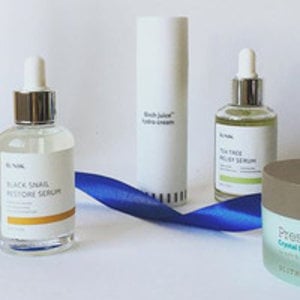 Beauty gifts
Beauty gifts <3 Gift Card
<3 Gift Card
 7-Skin Method
7-Skin Method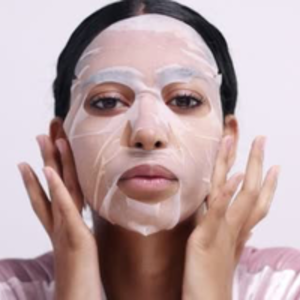 1 Day 1 Mask
1 Day 1 Mask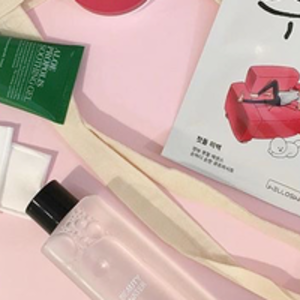 Best of K-beauty
Best of K-beauty Face Gym
Face Gym Glass skin
Glass skin
 Haru Haru Exclusives
Haru Haru Exclusives Fashion & Lifestyle
Fashion & Lifestyle

 1. Cleansing
1. Cleansing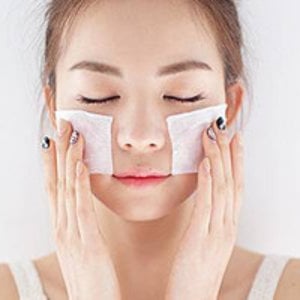 2. Toner
2. Toner 3. Eye cream
3. Eye cream 4. Treatment / Boost
4. Treatment / Boost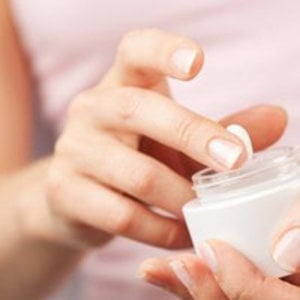 5. Moisturizer
5. Moisturizer 6. Sun protection
6. Sun protection 6. Night treatments
6. Night treatments
 Skin type - Normal
Skin type - Normal Skin type - Dry
Skin type - Dry Skin type - Oily
Skin type - Oily Skin type - Combi
Skin type - Combi Skin type - Sensitive
Skin type - Sensitive Skin concern - Dehydrated
Skin concern - Dehydrated Skin concern - Pigmentation
Skin concern - Pigmentation Skin concern - Acne
Skin concern - Acne Skin concern - Wrinkles
Skin concern - Wrinkles
 How much should I use?
How much should I use? Applications and handlings
Applications and handlings Sequence and waiting times
Sequence and waiting times Mask guideline
Mask guideline Recycle & upcycle
Recycle & upcycle
 Natural vs. synthetic
Natural vs. synthetic Clean vs. dirty beauty
Clean vs. dirty beauty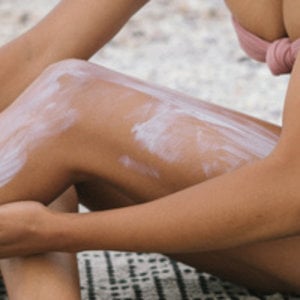 Mineral vs. chemical UV filter
Mineral vs. chemical UV filter Open and closed pores
Open and closed pores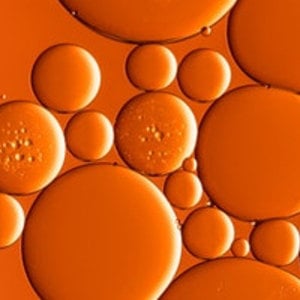 Oils are bad for oily skin types
Oils are bad for oily skin types No makeup, no double cleansing
No makeup, no double cleansing No sun, no sunscreen
No sun, no sunscreen Scary acids
Scary acids Oily skin, no moisturizer
Oily skin, no moisturizer
 Sheet Masking Tips
Sheet Masking Tips 7 Skin Method
7 Skin Method
 Pigmentations & dullness
Pigmentations & dullness Wrinkles & lines
Wrinkles & lines Acne & pimples
Acne & pimples Enlarged pores
Enlarged pores Oil control
Oil control ⤷ Sebum production
⤷ Sebum production
 Ingredients
Ingredients Glossary
Glossary FAQ: kbeauty
FAQ: kbeauty FAQ: skincare
FAQ: skincare Workshops
Workshops
 Skintype quiz
Skintype quiz Routine quiz
Routine quiz Acne quiz
Acne quiz


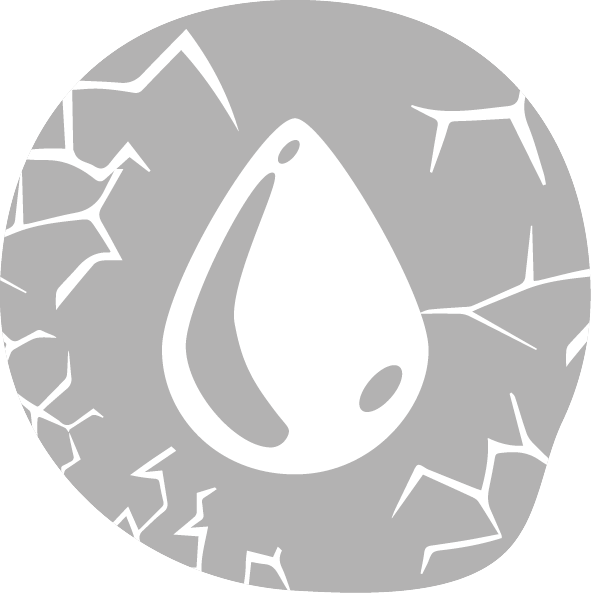


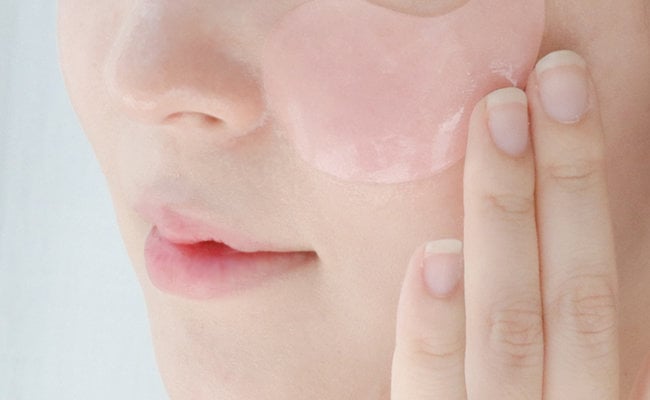
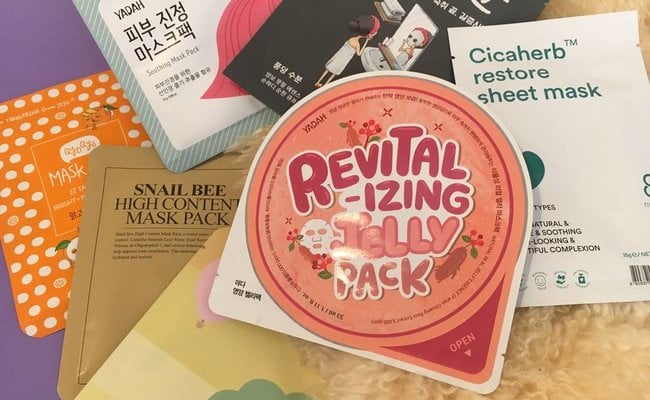




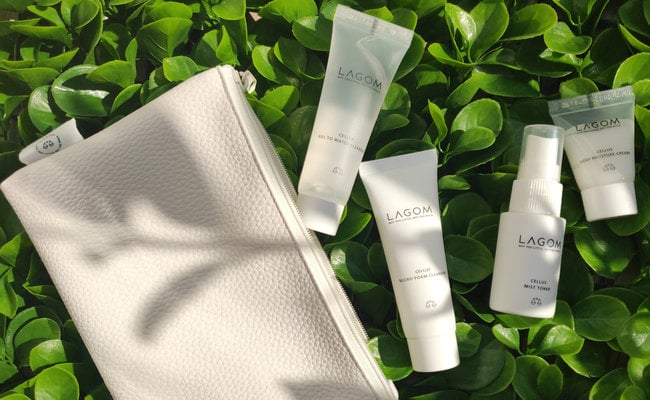







![[ PETITFEE ]
Beautifying Mood on Cleanser -100ml](https://cdn.webshopapp.com/shops/239114/files/406948442/400x450x1/petitfee-beautifying-mood-on-cleanser-100ml.jpg)
![[THANK YOU FARMER] Rice Pure Clay Mask to Foam Cleanser - 150ml](https://cdn.webshopapp.com/shops/239114/files/409487563/400x450x1/thank-you-farmer-rice-pure-clay-mask-to-foam-clean.jpg)
![[ YADAH ]
Be My Tint 01 Wannabe Pink - 4g](https://cdn.webshopapp.com/shops/239114/files/211817276/400x450x1/yadah-be-my-tint-01-wannabe-pink-4g.jpg)